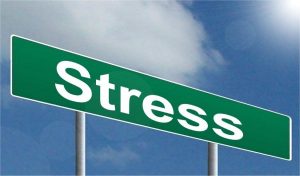
For all our IBS patients out there, this month is your month: IBS Awareness Month. We know the frustration and pain that can come with this diagnosis, the social isolation, the constant concern about finding the nearest bathroom.
Many of you see a connection between stress and flares of your IBS symptoms. Here are some ways you can minimize your stress levels and (hopefully) minimize your IBS symptoms.
Prepare yourself for the approach of stressful events.
Do you have a big presentation at work or your final exams at school coming up? Procrastination is not your friend. Give yourself adequate time to prepare so that you feel more confident the day of the event. Then go in with a smile, ready to do your best!
Leave early when you have to be somewhere at a certain time.
The stress of driving through traffic, trying to catch the last remaining seconds on a yellow light, or finding a parking spot when trying to get somewhere on time is not something we often think about. However, you may find that giving yourself a little extra time for commutes helps achieve punctuality with less stress, which can translate to a smoother start to the day.
Practice daily self-care.
While there are certain events which are inherently stressful for most people (for example, public speaking), much of the stress we feel in our daily lives is a build up of several smaller stresses which then results in a larger feeling of stress. While stress is inevitable, daily self-care can help you deal with it at your best. Self-care looks different for each individual, but involves diet, exercise, sleep, meaningful work, and relaxation. The key to finding the self-care routine that works for you is to listen to your body. For example, do you find yourself dragging in the morning if you only get seven hours of sleep? Try to get seven and a half hours of sleep the next night to see if you feel better.
Maintain your diet.
Many IBS patients find foods which trigger their symptoms. Be your own food detective to determine what makes you feel poorly. Keeping a journal of the foods you eat and your symptoms can be helpful for this. Once you know what doesn’t agree with you, avoid it. Don’t be afraid to ask restaurants for ingredient lists or to ask what’s in a certain dish if you’re eating at a friend’s or relative’s house. Your health depends on it.
Get enough rest.
The current recommendation for adults is to sleep 7-9 hours nightly. However, each person’s sleep requirements differ. Want to know what your personal sleep requirements are? Watch how much you sleep during the work or school week, then compare it to how much you sleep on weekends or while on vacation. If there’s a big difference (you’re getting more sleep on the weekends/during vacation than during the week), chances are you aren’t getting enough sleep during the week. Then rearrange your schedule accordingly.
Meditate.
Taking time out of our busy lives to unplug from phones, email, social media, and any other things that demand our attention is important. Give yourself ten minutes of quiet without distraction every day. Take this time to breathe deeply, relax and re-center. You can then dive back into the rest of your day a little calmer.
Have your medications on hand.
The medication from your doctor is there to help you. Make sure you always have it with you so you know it’s there if you need it. Then take it according to instructions. If it doesn’t seem to help, make an appointment to discuss this with your doctor so an alternative can be found.
Play! Reward yourself. Indulge.
What sounds like the best thing to do with a free afternoon? Make time to do that, whether it’s a creative project, a massage, fixing up an old car, or just hanging out with friends by the pool. The secret to refreshing downtime is to be fully present during that time. That means no work emails, no work phone calls, no work whatsoever. Fully enjoy your time to play.
Less stress makes life better for everyone. We hope these tips prove useful.

Share This